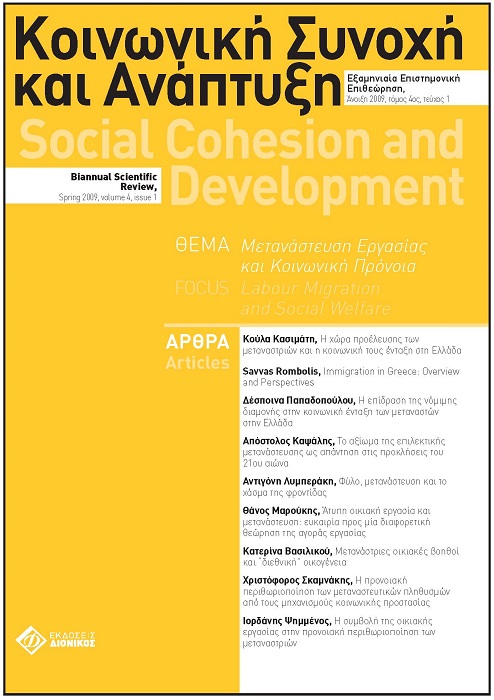Informal domestic labour and migration: opportunity towards a different approach on the labour market

Abstract
This paper intends to show, that the current
marginalization of domestic labour runs in the
detriment of both the workers and the needs
of the labour market. It is strongly contested
whether domestic labour in its current form
can meet the demands of a fl exible and
economic and social environment. At the
core of discussions on new, fl exible forms
of organization of labour one usually fi nds
economic sectors involving high skills and
added value. However, the diffusion of fl exible
employment schemes is related not only with
more high skill jobs in the labour market
but also with the creation of infrastructures
and niches able to support them. In this
context, a pathway towards the viability of
the marginalized niche of domestic labour
is discussed. Key position in this venture
is that the devaluation of domestic labour
is the product of a social – and therefore
manageable and reversible – process.
Article Details
- How to Cite
-
Μαρούκης Θ. (2016). Informal domestic labour and migration: opportunity towards a different approach on the labour market. Social Cohesion and Development, 4(1), 95–108. https://doi.org/10.12681/scad.8908
- Section
- Articles

This work is licensed under a Creative Commons Attribution-NonCommercial-ShareAlike 4.0 International License.
Authors who publish with this journal agree to the following terms:
- Authors retain copyright and grant the journal right of first publication with the work simultaneously licensed under a Creative Commons Attribution Non-Commercial License that allows others to share the work with an acknowledgement of the work's authorship and initial publication in this journal.
- Authors are able to enter into separate, additional contractual arrangements for the non-exclusive distribution of the journal's published version of the work (e.g. post it to an institutional repository or publish it in a book), with an acknowledgement of its initial publication in this journal.
- Authors are permitted and encouraged to post their work online (preferably in institutional repositories or on their website) prior to and during the submission process, as it can lead to productive exchanges, as well as earlier and greater citation of published work (See The Effect of Open Access).


